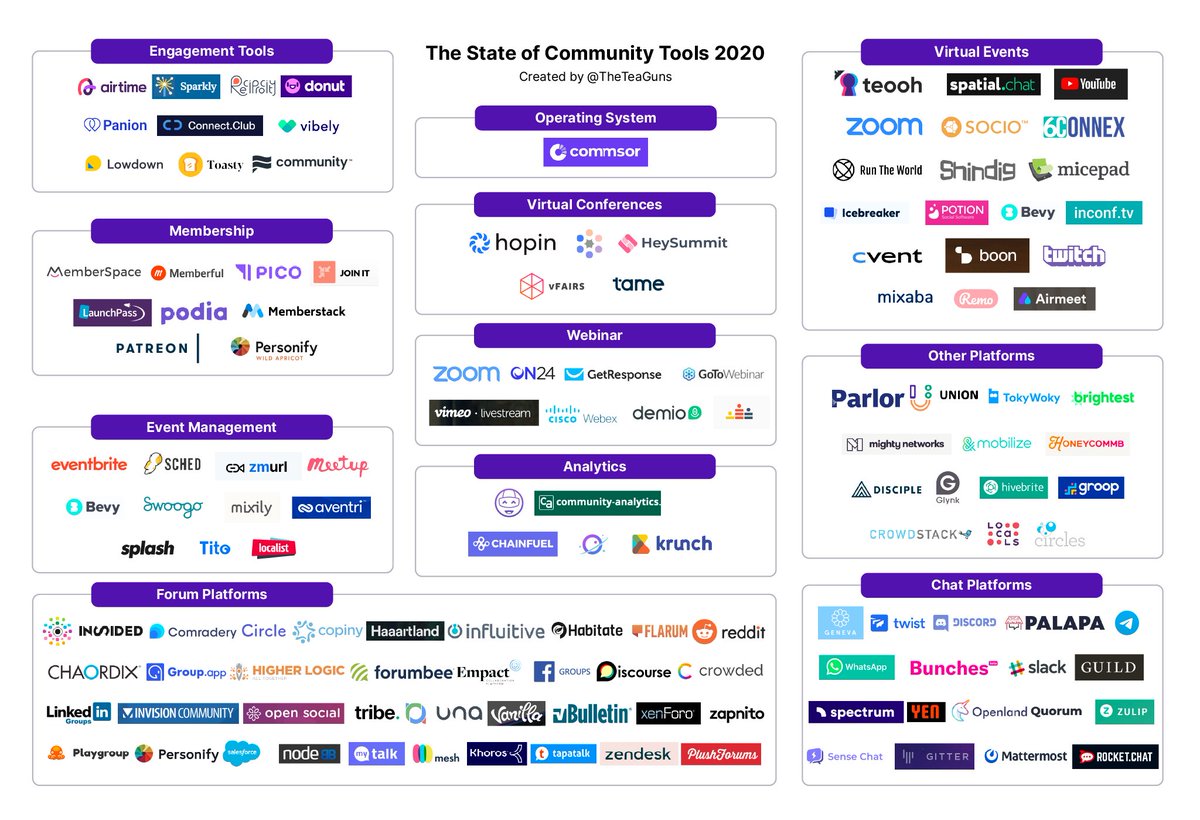The landscape of software tools for building an online community online is exploding, with 130+ companies mapped here.
There won't be a single de-facto set of tools for running an online community. That’s because community is incredibly broad.
https://www.commsor.com/post/mapping-the-ecosystem-of-community-tools
There won't be a single de-facto set of tools for running an online community. That’s because community is incredibly broad.
https://www.commsor.com/post/mapping-the-ecosystem-of-community-tools
In the offline world, community gets built in lots of different ways, across different types of venues and interactions.
Communities online will get built in different ways too, leveraging different "community stacks."
Communities online will get built in different ways too, leveraging different "community stacks."
One community might use Discourse + Zoom; another one might use Telegram + Icebreaker… That’s because a community for, say, fitness lovers has really different needs than a Tik Tok cult!
There’s different types of engagement, frequency, and UGC being shared.
There’s different types of engagement, frequency, and UGC being shared.
Communities differ in many ways, including:
- Degree of P2P engagement
- Level of intentionality (is the community a standalone destination? or an extension of something else?)
- How members interact w/ each other
- What type of UGC is being generated https://twitter.com/ljin18/status/1207731353740988416
- Degree of P2P engagement
- Level of intentionality (is the community a standalone destination? or an extension of something else?)
- How members interact w/ each other
- What type of UGC is being generated https://twitter.com/ljin18/status/1207731353740988416
Instead of trying to be everything to everyone, startups building community tools face a few key questions:
What is the best way to abstract different types of interaction so as to be able to serve a large enough market? What are the commonalities between different communities?
What is the best way to abstract different types of interaction so as to be able to serve a large enough market? What are the commonalities between different communities?
Some other thoughts on community:
- Communities are setting up their own independent properties, separate from large social platforms:
https://twitter.com/ljin18/status/1185271777838034944
- "Community-as-a-service", or how communities can monetize: https://twitter.com/ljin18/status/1187092203241263104
- Communities are setting up their own independent properties, separate from large social platforms:
https://twitter.com/ljin18/status/1185271777838034944
- "Community-as-a-service", or how communities can monetize: https://twitter.com/ljin18/status/1187092203241263104

 Read on Twitter
Read on Twitter


